IPOPI’s PID Life Index – the PID environment around the globe
An interactive tool built on 6 key principles of care that measures the status of the PID healthcare environment across the globe
An interactive tool built on 6 key principles of care that measures the status of the PID healthcare environment across the globe
Global immunoglobulin supply: steaming towards the iceberg?
A new article looking at plasma collection and immunoglobulin supply dynamics has just been published. In “Global immunoglobulin supply: steaming towards the iceberg?”, IPOPI’s Executive Director Johan Prevot and Professor Stephen Jolles (University Hospital of Wales) describe how plasma is sourced for fractionation into plasma-derived medicinal products (PDMPs), such as immunoglobulin (Ig) and provide an overview of the global plasma supply environment. Specific areas of growth in immunoglobulin use are identified alongside novel therapies, both of which are likely to have an impact on the access to immunoglobulin therapies in the years to come.
The article describes the current significant geographical imbalance in global plasma supply and the dependency on the United States. It argues for both more plasma supply and greater regionally balanced plasma collection to achieve global sufficiency in PDPMs. It also highlights the need for progress to be made towards a transparent, regulated and well tolerated framework for the coexistence of unpaid and compensated plasma donations. Concluding that these discussions should be informed by the needs of patients for these life-saving therapies, the care of donors and the safety of plasma and PDMPs.
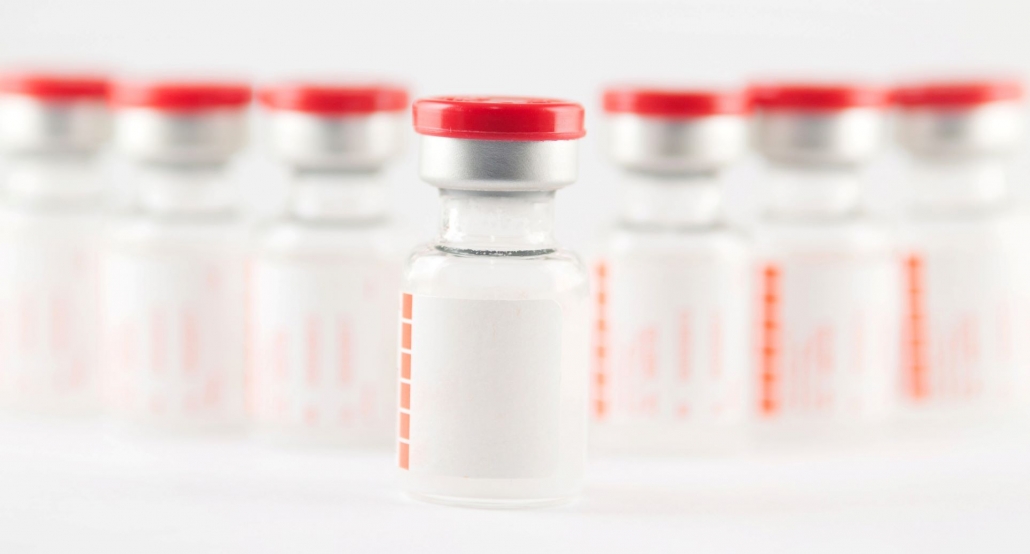
IPOPI is glad to take part in the celebration of the International Plasma Awareness Week (IPAW), calling for national, regional and international decision makers to consider ways of safely increasing plasma collection. Sufficient plasma collection is much needed to ensure that many patients with primary immunodeficiencies (PIDs) continue to access the life-saving immunoglobulin replacement therapies.
Demand for immunoglobulin has been continuing to rise at a rate of 6-8% yearly in the past years, therefore, ensuring sufficient collection and supply of plasma has been an ongoing concern. The COVID-19 pandemic has led to a worldwide decline of blood and plasma donations which will lead to further strains on the supply of immunoglobulins.
Read the 7 measures IPOPI is calling for: IPOPI Statement for IPAW
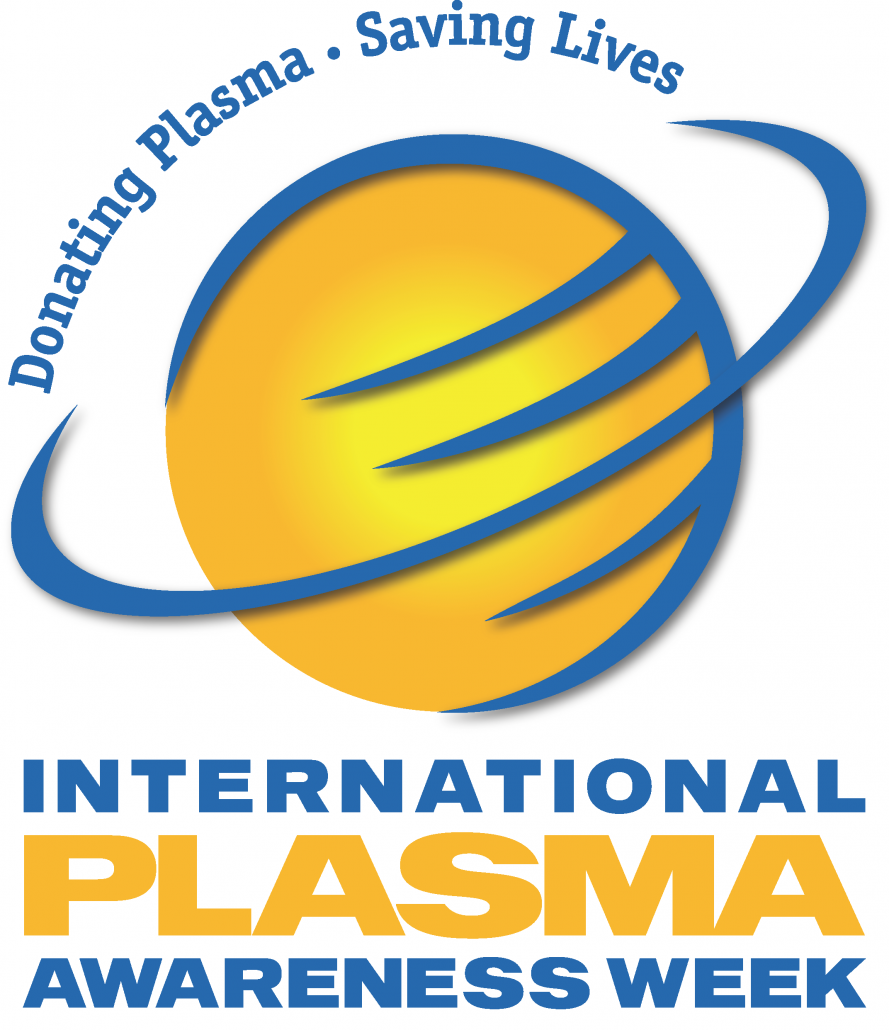
IPOPI had the great pleasure of welcoming delegates from 19 countries from the Asia-Pacific region to the virtual IPOPI 3rd Regional Asian PID Meeting, held on September 18-19, 2020. During this well attended online meeting the participants learned from both international and regional primary immunodeficiencies (PID) experts on the latest developments in Asia.
The meeting featured many key speakers, explored topics such as PID diagnosis and care priorities in Japan, SEAPID and APSID updates, transition care and much more. The participants also learned from a discussion on Complex regional clinical care cases, as well as an interactive workshop organised for patient representatives in the region.
The meeting was initially scheduled to take place in Kyoto, Japan, in September 2020, back to back with the JSA/WAO/APAPARI 2020 Congress. After careful consideration of the ongoing spread of COVID-19 worldwide, and in order to ensure the safety of all participants, IPOPI decided to move this meeting online, with a shortened programme.
The report and the videos of the meeting will soon be available here.
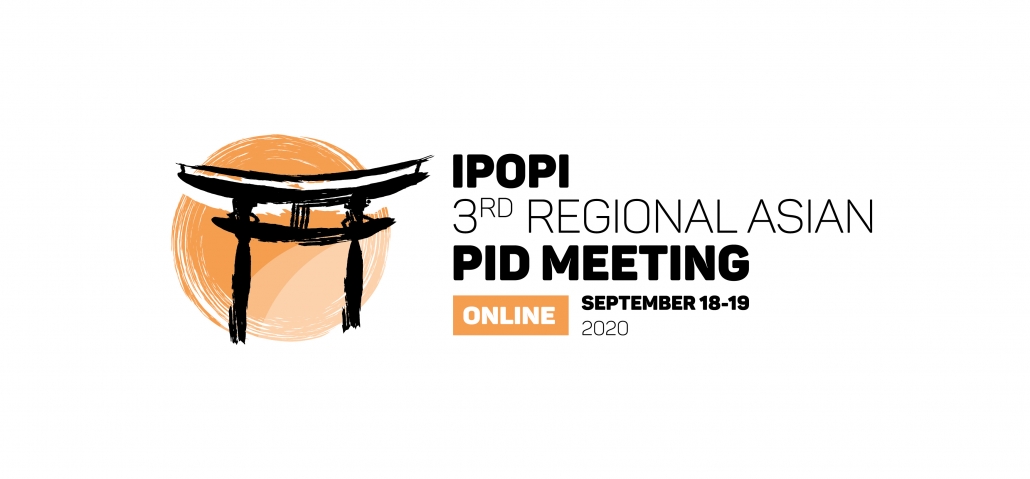
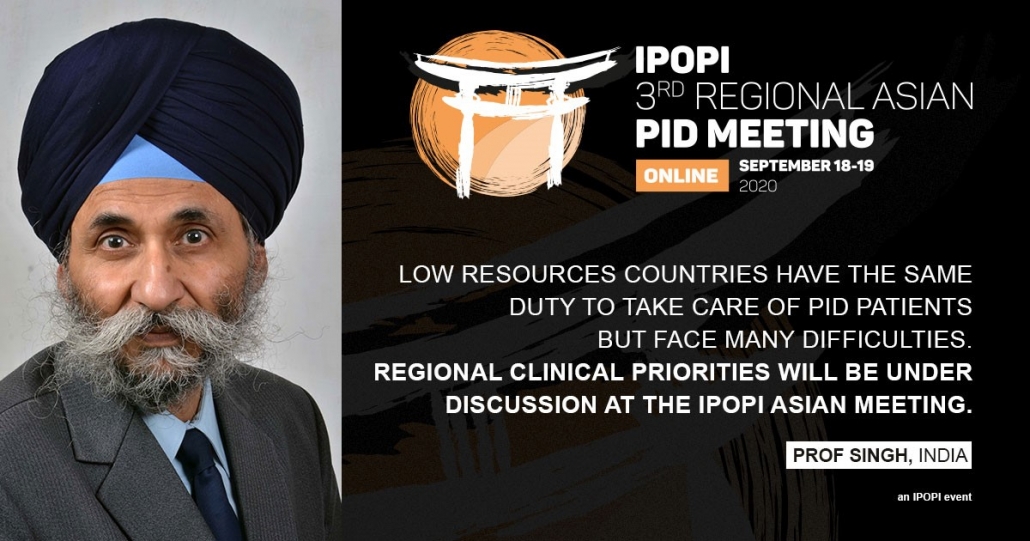
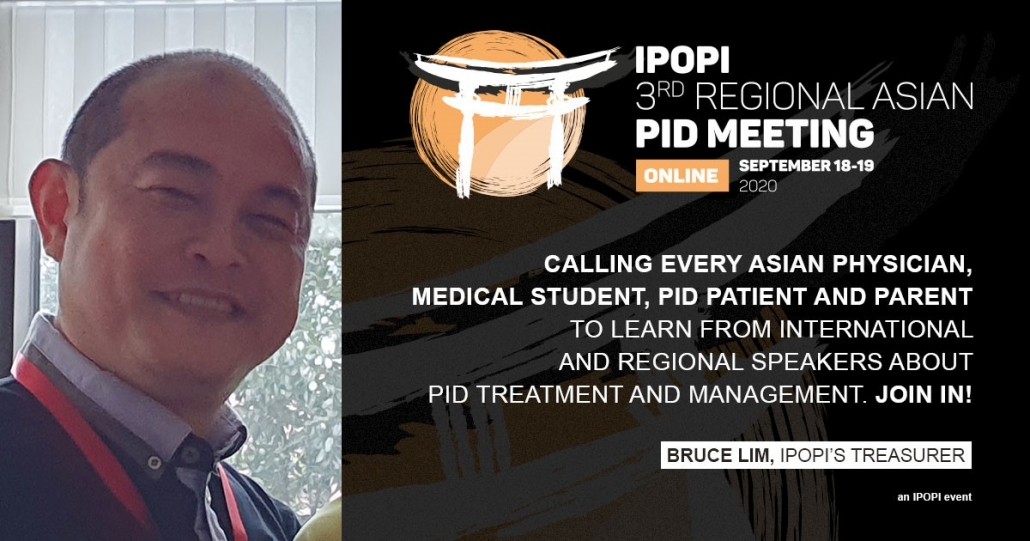
Belgium
Avenue Louise/Louizalaan 65, Bte 11
BE-1050 Brussels, Belgium
IPOPI aisbl is an international non-profit association registered in Belgium
Numéro d’entreprise
BE 0761.784.055
Email: info@ipopi.org
Tel: +32 2 790 73 66 (Belgium)